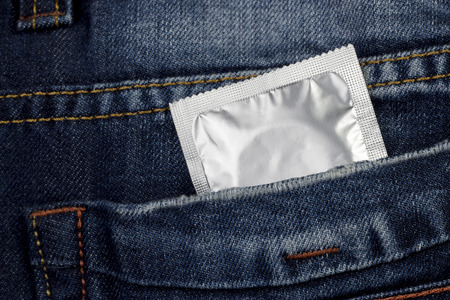 When it comes to birth control, women today have many different options, including condoms. Condoms are affordable, attainable, and relatively effective when used correctly, but there are some important facts every woman should know.
When it comes to birth control, women today have many different options, including condoms. Condoms are affordable, attainable, and relatively effective when used correctly, but there are some important facts every woman should know.Condoms are considered a barrier method birth control. There are two types of condoms: male and female. A male condom is a thin sheath designed to cover the penis, preventing sperm from entering the vagina. Male condoms are made of latex, polyurethane or natural animal membrane. They do not require a prescription and are readily available in pharmacies and a number of retail establishments.
Female condoms are soft plastic tubes with rings at both ends. The closed end of the tube is placed against the cervix and the plastic tubing lines the vagina, extending about one inch outside the vagina. The condom can be inserted up to 8 hours before sex and does not require a prescription.
Both female and male condoms offer protection against sexually transmitted infections (STIs), but latex and polyurethane condoms provide better protection than natural, animal skin condoms. OBGYNs recommend using a lubricant with both types of condoms to prevent tearing. If using a latex condom, opt for a water-based or silicone lubricant.
Studies indicate, when used correctly, male condoms are about 98 percent effective. Female condoms prevent pregnancy in 95 percent of cases. The risk of pregnancy is increased if condoms are not used correctly.
To boost pregnancy protection, gynecologists suggest using condoms in combination with a spermicide. Spermicides are available in gel, foam, cream, suppository, and film forms and all contain a chemical that works by inactivating sperm.
Individuals with latex or polyurethane allergies should be aware some condoms contain these ingredients and using them could trigger a reaction. OBGYNs also caution condom users to be aware of other potential problems, including:
- Expired condoms – when purchasing or using condoms, be sure to check the expiration date. Dispose of condoms that are past their expiration
- Don’t reuse – condoms are designed for one-time use only. Immediately dispose of condoms after using
- Damage – examine each condom before using. Toss any torn or damaged condoms
- Avoid improper storage – never store condoms in a hot vehicle. Condoms that are carried in a wallet should be replaced periodically
When choosing a birth control method, talk with your gynecologist about which products best fit your own personal needs and lifestyle. If you do use condoms, be sure you understand their correct usage.





